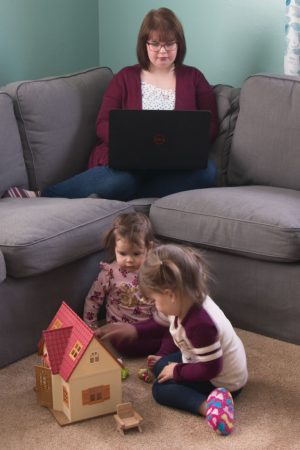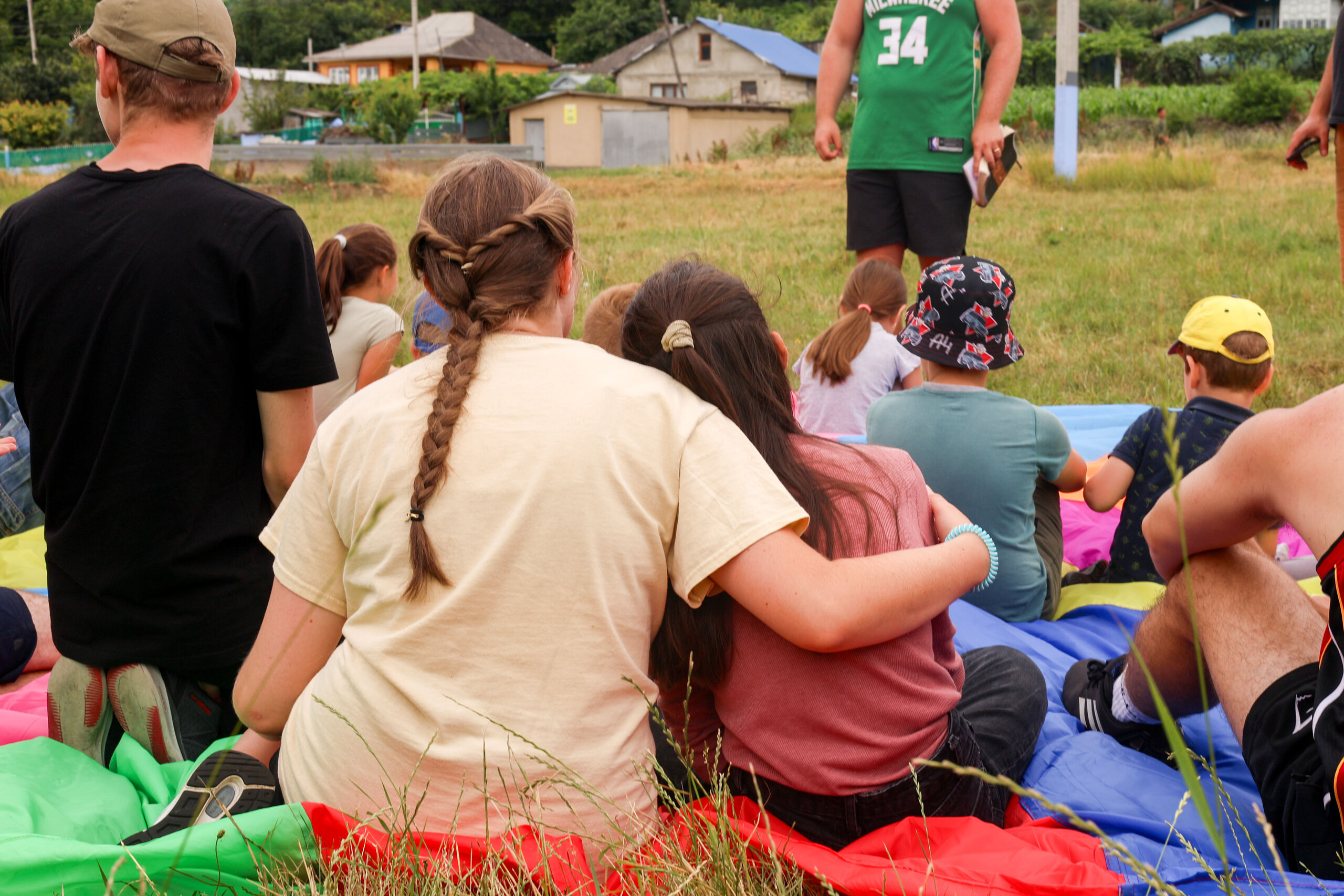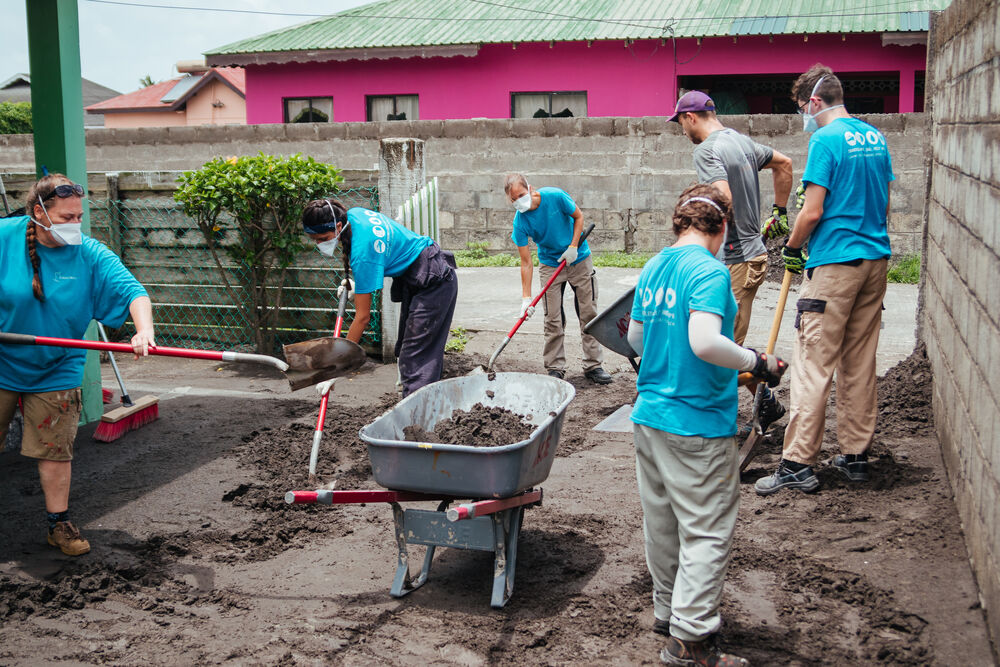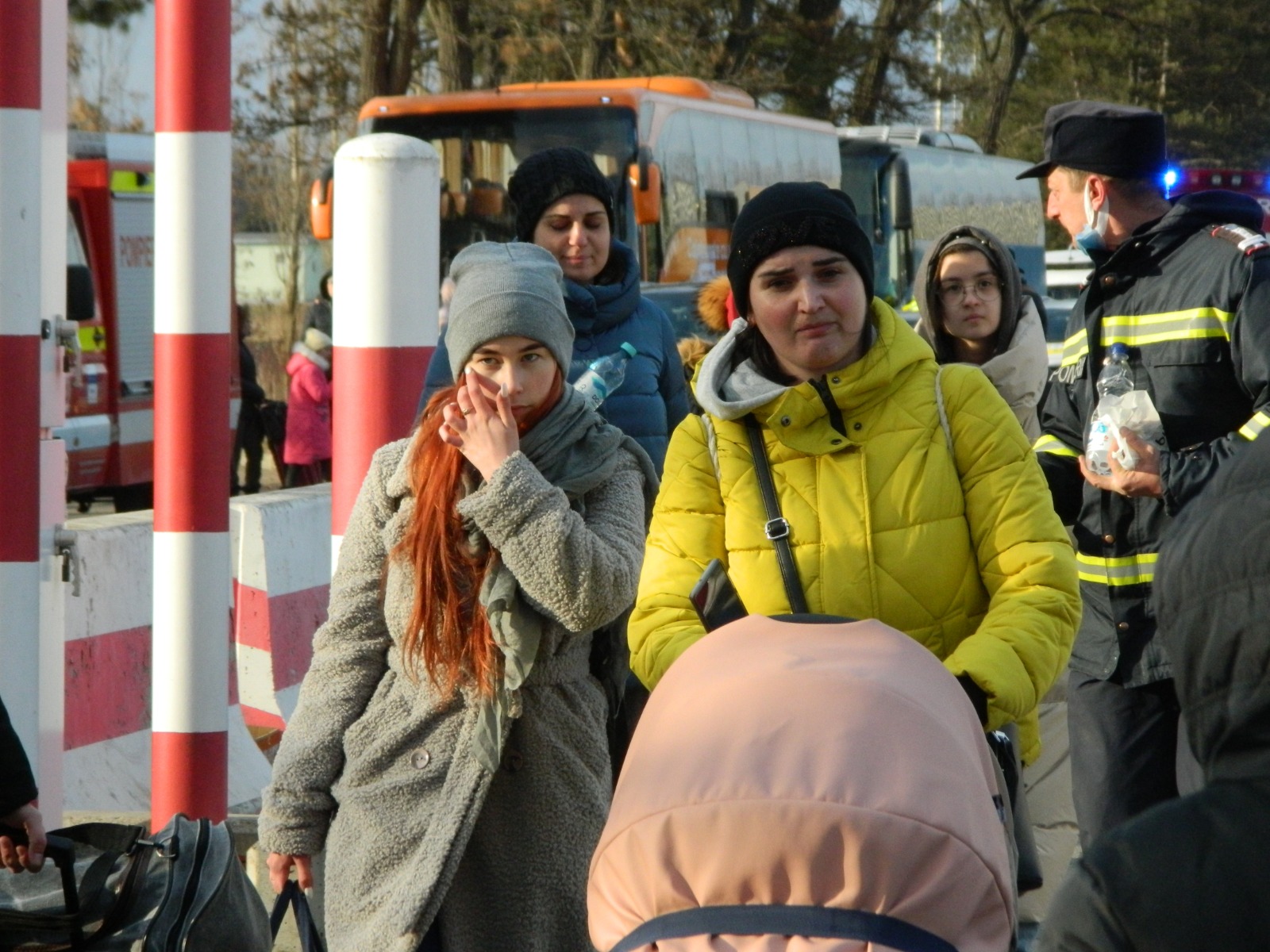We honor the life of George Verwer, our founder. Read More

Natalie serves the mobilization team in the Caribbean from her couch in Michigan.
As a sophomore in college, “I thought for sure God was going to call me to overseas missions,” said Natalie Down, a Michigan-based mother of two. But with an English major, her career trajectory didn’t fit the traditional mission’s role she envisioned. “Do I need to change my major? Learn a foreign language?” she wondered.
Researching the answers to these questions, Natalie found OM—and, listed among opportunities to serve, communications roles. “That’s what I wanted to do: I wanted to write,” she explained. “I thought it was really cool that you didn’t have to be a pastor or church planter to be a missionary.”
Though she was eager to serve, Natalie didn’t apply to OM right away. Instead, she went home for the summer, met her husband, and, eventually, married him and settled into suburban life. She worked as a legal writer for an immigration group for a year and a half until her first daughter, Lucy, was born. “When Lucy was about four months old, I watched a video of unreached people groups, and it reminded me of this burden I had in college,” Natalie shared.
Then she remembered OM.
She went to OM’s website, clicked on the communications section, and the first ad that popped up was the communications facilitator for the Caribbean. “It had writing stuff, it had graphic design, it was part-time, it was virtual,” she recalled. For the stay-at-home-mom, it seemed like a perfect fit.
Still, when Natalie had first thought about participating in missions, she wanted to go to Asia or Africa, not stay in Michigan. And she certainly didn’t picture missions involving the islands she knew as the US’s closest tropical holiday destination.
During video conferencing calls with the leader of OM’s work in the Caribbean as part of her application process, Natalie began to understand the region’s mobilization potential. “The Caribbean has a rich Christian background, but a lot of people there don’t think it’s their responsibility to go,” she explained.
Among the many committed Jesus followers living in the islands, “there are also many highly qualified people in a variety of skills,” said Nichola Henry from Jamaica, who serves as one of OM’s leaders in the Caribbean. “We want people to know that these skills are also needed in missions and are often in short supply.”

The team quickly welcomed Natalie on board, and she began doing a “bunch of little things” to support their communications efforts: running their Facebook page, writing newsletters, compiling financial reports, designing posters. Recently, she created an advertisement for a missions Zoom meeting the team was hosting.
“Flexibility and commitment to meeting deadlines are very important” for anyone interested in serving remotely, Nichola said. Though Natalie completes her tasks over scattered hours, squeezing in work when her kids are napping or after they go to bed, she’s excited for the little part of missions God’s given her. “I’m thankful I get to have a small role in people going and people sharing the gospel with other people,” she said.
“God really can use you, the gifts and abilities He’s given you, right where you are. I thought I had to go, had to have this super spiritual gift, that missionaries were a pastor or a church planter, but I can be part of God’s call for missions on my couch in Garden City, Michigan, making a poster that’s calling people to go.”
“God will use your skills and giftings if you’re willing to be used,” Natalie said. “It might not be the way you expected—it definitely wasn’t for me. But He will still use you, and you will still get to be a part of His work, if you’re willing to listen to Him.”
Keep up with and pray for OM’s Ministries
Your privacy is always important to us. When you visit our site, we may use cookies to improve your experience by storing information on your browser. You can manage your cookie preferences anytime by adjusting your settings. Just keep in mind that blocking some cookies may affect certain website features and functions.



